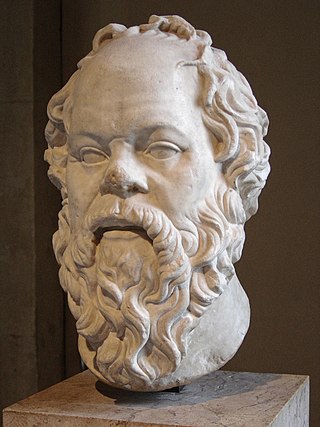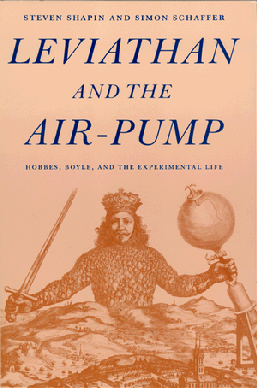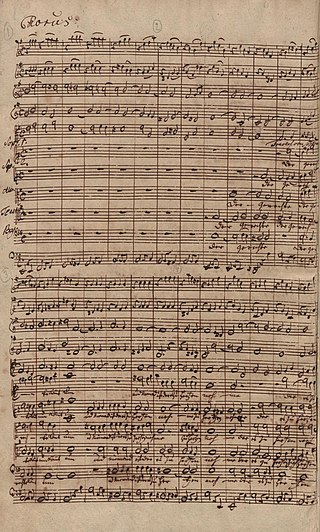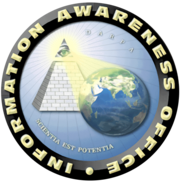
Francis Bacon, 1st Viscount St Alban PC, known as Lord Verulam between 1618 and 1621, was an English philosopher and statesman who served as Attorney General and Lord Chancellor of England under King James I. Bacon led the advancement of both natural philosophy and the scientific method, and his works remained influential even in the late stages of the Scientific Revolution.

Roger Bacon, also known by the scholastic accolade Doctor Mirabilis, was a medieval English philosopher and Franciscan friar who placed considerable emphasis on the study of nature through empiricism. In the early modern era, he was regarded as a wizard and particularly famed for the story of his mechanical or necromantic brazen head. He is sometimes credited as one of the earliest European advocates of the modern scientific method, along with his teacher Robert Grosseteste. Bacon applied the empirical method of Ibn al-Haytham (Alhazen) to observations in texts attributed to Aristotle. Bacon discovered the importance of empirical testing when the results he obtained were different from those that would have been predicted by Aristotle.

Thomas Hobbes was an English philosopher. Hobbes is best known for his 1651 book Leviathan, in which he expounds an influential formulation of social contract theory. In addition to political philosophy, Hobbes contributed to a diverse array of other fields, including history, jurisprudence, geometry, theology, and ethics, as well as philosophy in general. He is often considered to be one of the founders of modern political philosophy.

The Baconian method is the investigative method developed by Francis Bacon, one of the founders of modern science, and thus a first formulation of a modern scientific method. The method was put forward in Bacon's book Novum Organum (1620), or 'New Method', and was supposed to replace the methods put forward in Aristotle's Organon. This method was influential upon the development of the scientific method in modern science; but also more generally in the early modern rejection of medieval Aristotelianism.

Bellum omnium contra omnes, a Latin phrase meaning "the war of all against all", is the description that Thomas Hobbes gives to human existence in the state-of-nature thought experiment that he conducts in De Cive (1642) and Leviathan (1651). The common modern English usage is a war of "each against all" where war is rare and terms such as "competition" or "struggle" are more common.

Leviathan or The Matter, Forme and Power of a Commonwealth Ecclesiasticall and Civil, commonly referred to as Leviathan, is a book written by Thomas Hobbes (1588–1679) and published in 1651. Its name derives from the biblical Leviathan. The work concerns the structure of society and legitimate government, and is regarded as one of the earliest and most influential examples of social contract theory. Written during the English Civil War (1642–1651), it argues for a social contract and rule by an absolute sovereign. Hobbes wrote that civil war and the brute situation of a state of nature could be avoided only by a strong, undivided government.

Intellectualism is the mental perspective that emphasizes the use, development, and exercise of the intellect, and is identified with the life of the mind of the intellectual. In the field of philosophy, the term intellectualism indicates one of two ways of critically thinking about the character of the world: (i) rationalism, which is knowledge derived solely from reason; and (ii) empiricism, which is knowledge derived solely from sense experience. Each intellectual approach attempts to eliminate fallacies that ignore, mistake, or distort evidence about "what ought to be" instead of "what is" the character of the world.
In philosophy, potentiality and actuality are a pair of closely connected principles which Aristotle used to analyze motion, causality, ethics, and physiology in his Physics, Metaphysics, Nicomachean Ethics, and De Anima.

Jerusalem, or on Religious Power and Judaism is a book written by Moses Mendelssohn, which was first published in 1783 – the same year when the Prussian officer Christian Wilhelm von Dohm published the second part of his Mémoire Concerning the amelioration of the civil status of the Jews. Moses Mendelssohn was one of the key figures of Jewish Enlightenment (Haskalah) and his philosophical treatise, dealing with social contract and political theory, can be regarded as his most important contribution to Haskalah. The book which was written in Prussia on the eve of the French Revolution, consisted of two parts and each one was paginated separately. The first part discusses "religious power" and the freedom of conscience in the context of the political theory, and the second part discusses Mendelssohn's personal conception of Judaism concerning the new secular role of any religion within an enlightened state. In his publication Moses Mendelssohn combined a defense of the Jewish population against public accusations with contemporary criticism of the present conditions of the Prussian Monarchy.
De Cive is one of Thomas Hobbes's major works. The book was published originally in Latin from Paris in 1642, followed by two further Latin editions in 1647 from Amsterdam. The English translation of the work made its first appearance four years later under the title Philosophicall rudiments concerning government and society.

Leviathan and the Air-Pump: Hobbes, Boyle, and the Experimental Life is a book by Steven Shapin and Simon Schaffer. It examines the debate between Robert Boyle and Thomas Hobbes over Boyle's air-pump experiments in the 1660s. In 2005, Shapin and Schaffer were awarded the Erasmus Prize for this work.
Anglo-Latin literature is literature from Britain originally written in Latin. It includes literature written in Latin from parts of Britain which were not in England or English-speaking: "Anglo-" is used here as a prefix meaning British rather than English.

Disputationes, also referred to as De Controversiis or the Controversiae, is a work on dogmatics in three volumes by Robert Bellarmine.

British philosophy refers to the philosophical tradition of the British people. "The native characteristics of British philosophy are these: common sense, dislike of complication, a strong preference for the concrete over the abstract and a certain awkward honesty of method in which an occasional pearl of poetry is embedded".
This is a timeline of philosophy in the 17th century.
A.J.'s Time Travelers is a 1994 children's fantasy series that aired on the Fox television network. The series follows the adventures of teenager A.J. Malloy as he and his crew travel onboard the time-traveling ship Kyros, seeking knowledge across history.

Der Gerechte kömmt um, BWV 1149, is a motet for SSATB singers and instrumental ensemble, which, for its music, is based on the five-part a cappella motet Tristis est anima mea attributed to Johann Kuhnau, and has the Luther Bible translation of Isaiah 57:1–2 as text. The arrangement of the Latin motet, that is, transposing it to E minor, adjusting its music to the new text, and expanding it with an instrumental score for two traversos, two oboes, strings and basso continuo, is attributed to Johann Sebastian Bach. The setting is found in a manuscript copy, likely written down in the 1750s, of Wer ist der, so von Edom kömmt, a Passion oratorio which is a pasticcio based on compositions by, among others, Carl Heinrich Graun, Georg Philipp Telemann and Bach. Likely Der Gerechte kömmt um existed as a stand-alone motet, for example for performance on Good Friday or at a funeral, before being adopted in the pasticcio.
The Spontis or Sponti movement was a left-wing movement in West Germany in 1970s-1980s. The name is an abbreviation for the word "spontaneous", in reference to their preference of "revolutionary spontaneity of the masses" over theoretically- and party-based movements. A significant force of this movement were university students.

Hermann Otto Haack was a German geographer and cartographer.

Sapiens dominabitur astris is a Latin maxim initially used in astrology, theology, philosophy and literature from the late 13th to late 17th centuries. The phrase has been traditionally attributed to Greco-Roman scientist Ptolemy, but modern scholarship views it as a compilation from two later sources. Presently, the phrase is featured on the emblem of the Main Directorate of Intelligence of Ukraine.















